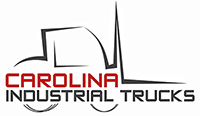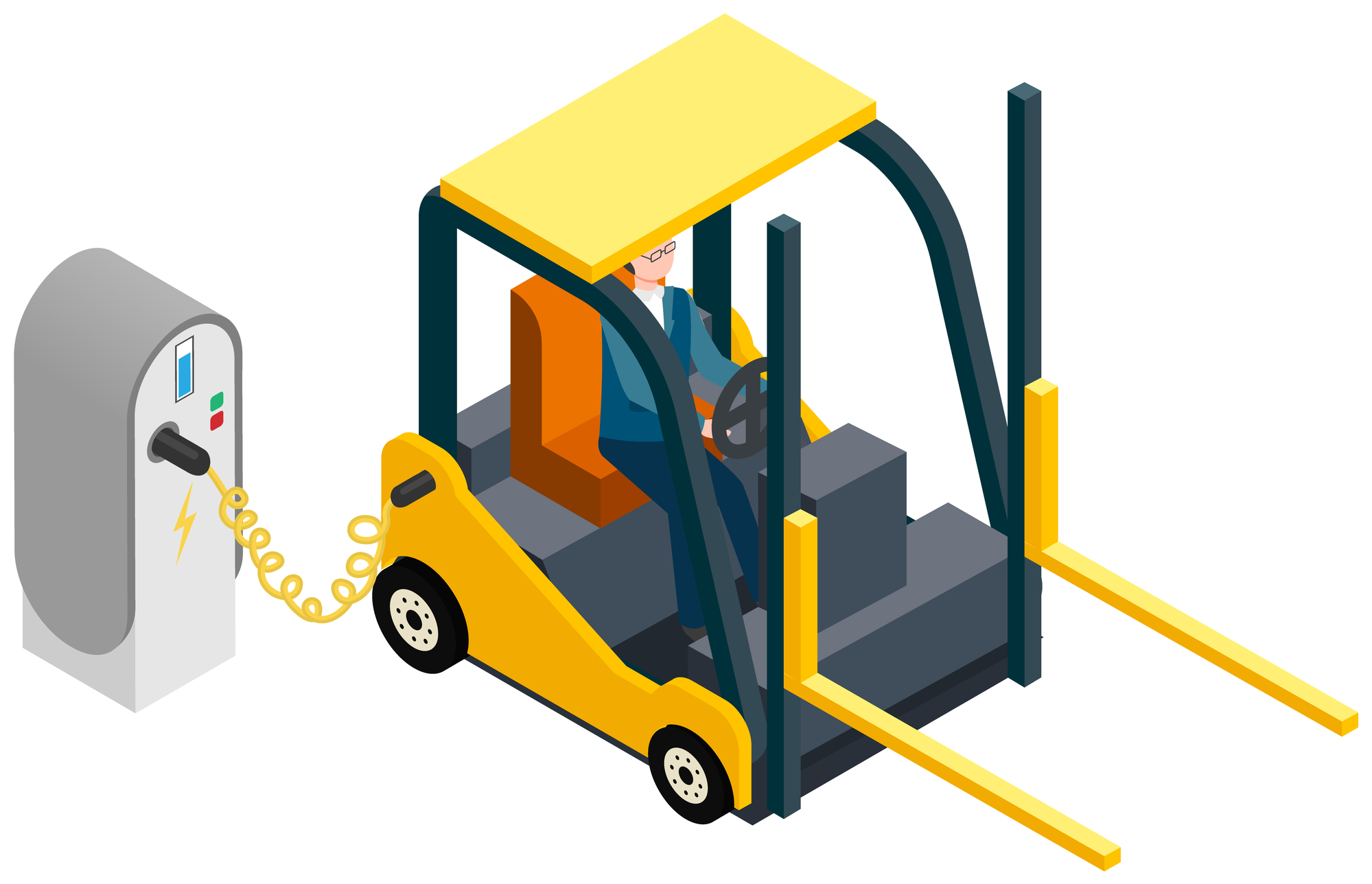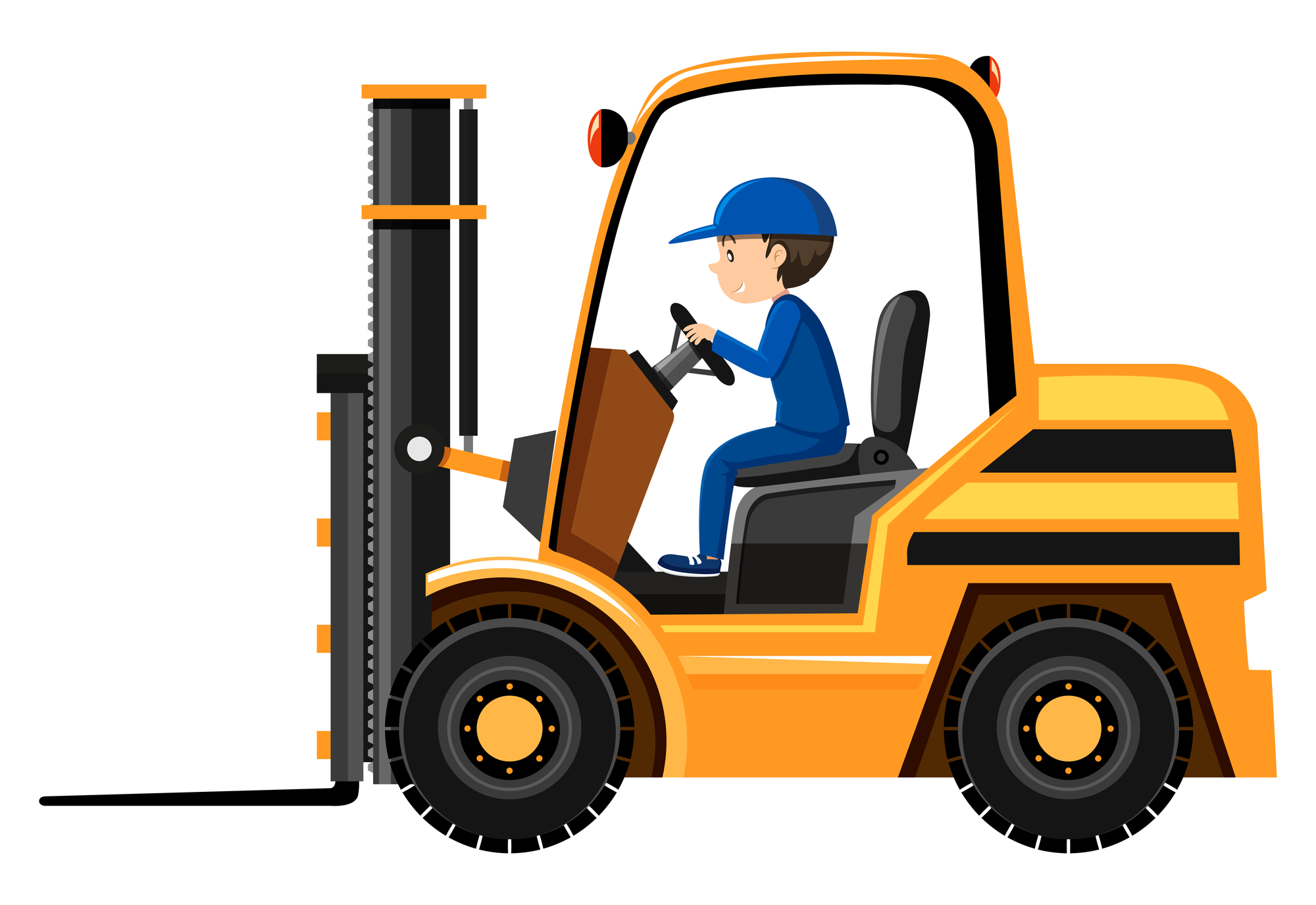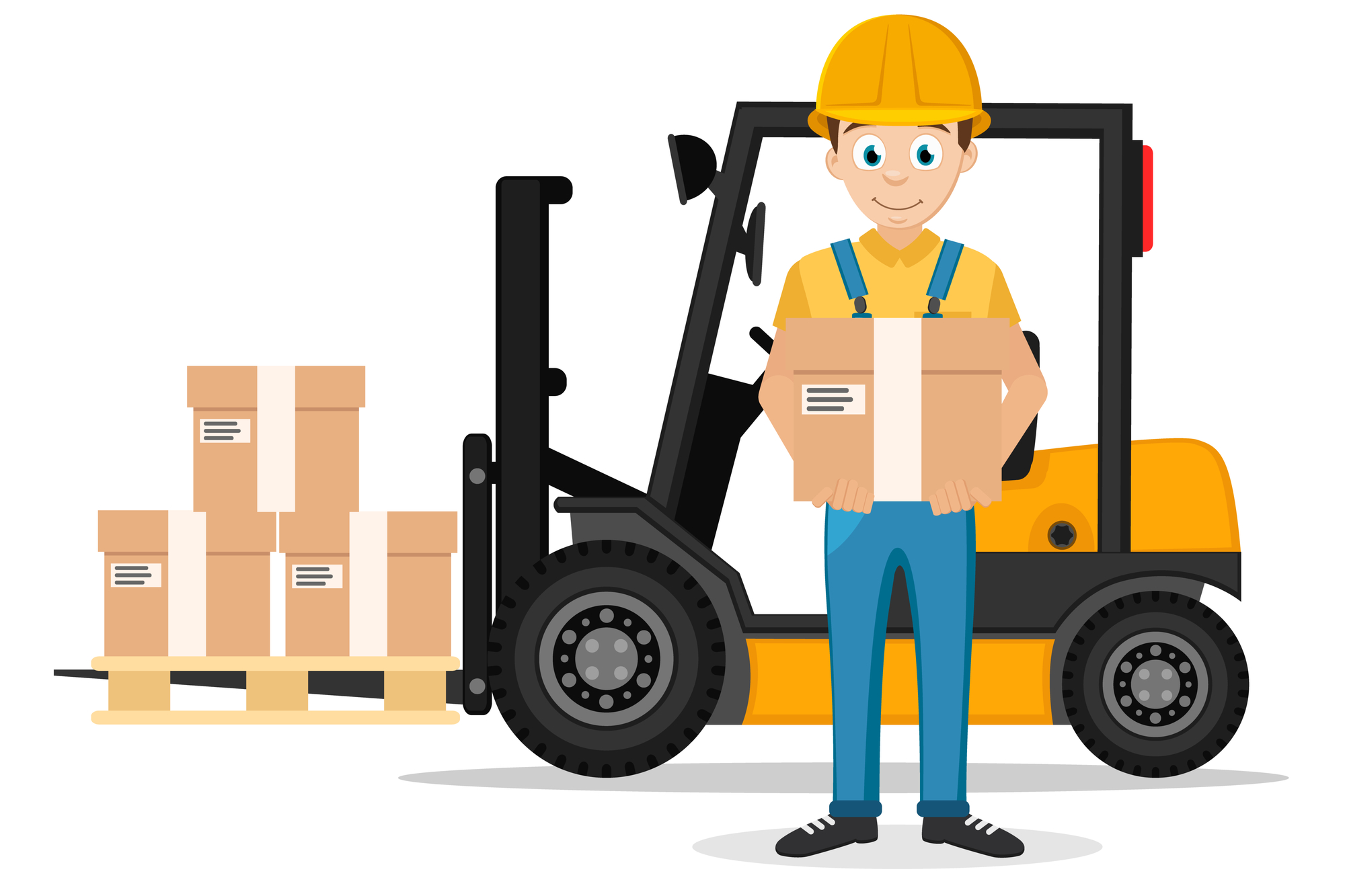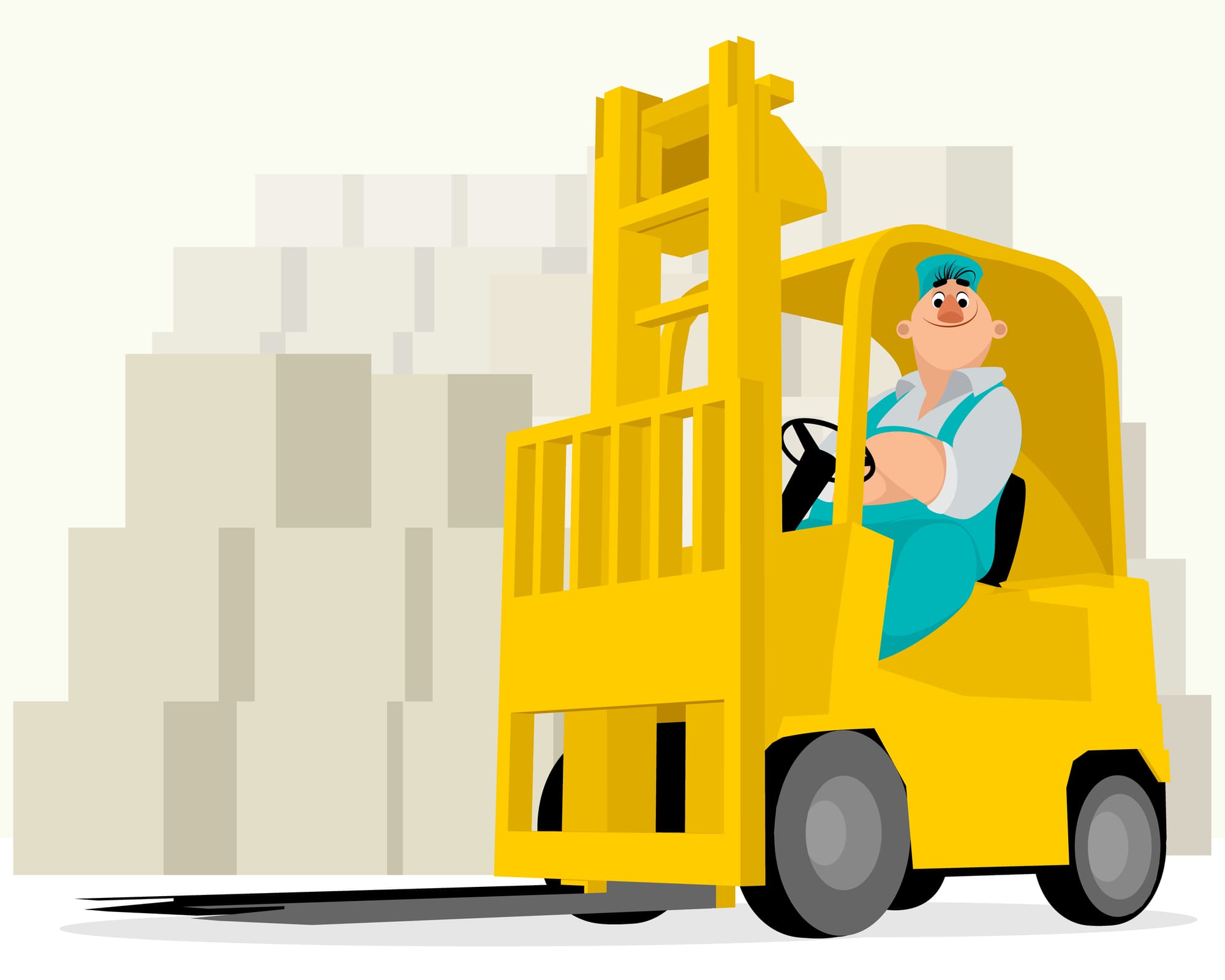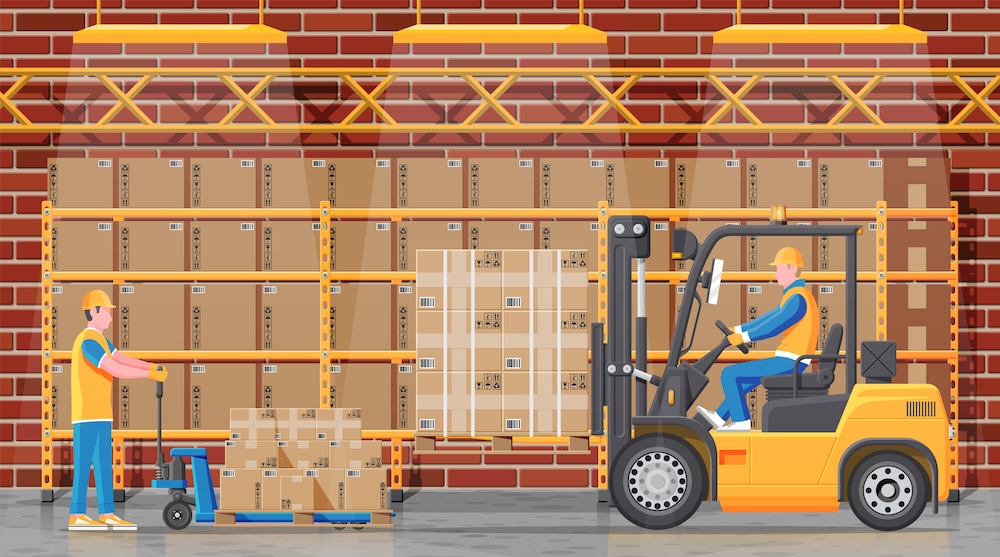The Most Common Forklift Accidents and How to Prevent Them
11/24/2020
CITrucks
According to US industry statistics, there’s a 90 percent probability of a forklift getting involved in at least one serious injury or fatality in the course of its useful lifetime. OSHA estimates that more than 11 percent of all forklifts in the country are involved in an accident every year. Of these forklift accidents, 85 are fatal, 34, 900 cause serious injury, and 61,800 result in non-serious injury.
A warehouse accident can prove catastrophic to your business, not just in terms of human costs but also financially. Compensating a worker involved in a forklift accident can set you back hundreds of thousands of dollars or much more. Some of these incidents attract heavy penalties too, with OSHA charging up to $70,000 per safety violation that’s committed willfully.
Interestingly, the vast majority of forklift accidents are easily avoidable. All you need is to understand what accidents are most likely to occur that involve forklifts so you can deploy preventive measures against them.
In today's post, we discuss the six most common forklift accidents and how you can prevent them.
Pedestrian Collisions
As we revealed in the forklift accident statistics, many people lose their lives each year as a result of injuries sustained during forklift accidents. A significant number of these people are pedestrians. People working in the same space as moving forklifts run the risk of getting stuck or crushed by these motorized machines.
How do you prevent these incidents?
Well, you can start by having clear and separate paths for your ground workers and truck lifts. Set up physical barriers to separate pedestrians from forklifts. Erect rails and gates where appropriate to prevent pedestrians from crossing into the path of truck lifts and vice versa.
Some accidents happen due to low visibility. Having your ground workers wear hi-visibility safety clothes can help reduce forklift-pedestrian incident rates. It’s also vital to make sure that all your forklifts have mirrors, sensors, and lights to boost visibility.
Forklift Overturns
Some of the worst forklift accidents involve the machinery overturning. In fact, most forklift-related fatalities are the result of this type of accident.
Some of the reasons a forklift would overturn include:
- Over speeding
- Improper turning
- Driving on inclines
- Driving forklifts with elevated loads
- Operating the forklift on wet or uneven surfaces
There are simple ways to operate forklift overturns. For instance, drivers should adhere to speed guidelines given by the forklift manufacture. They should also avoid overloading forklifts with product.
Advise forklift operators to avoid raising or lowering loads while trucks are in motion. Where there are slopes, it's important to go slowly and in a straight line instead of moving at an angle.
Forklift Collisions
Forklifts don’t only strike people. These pieces of machinery can also collide with other forklifts, especially in crowded areas. Forklift collisions can result in injuries and damage to your stock.
So, how do you prevent these collisions? One way is to complete a 360-degree visual check before you start to accelerate from a stop. This should always be done regardless of the direction you want to go.
Every driver should focus on the direction they are moving towards. They should strive to eliminate any distractions that might take away their direction from what they’re doing. Make sure that the area forklifts travel is well lit to avoid chances of collisions.
Falls from the Forklift
The likelihood of someone falling from any type of forklift sure does seem minimal. However, you’ll be surprised at how common these incidents are.
Many warehouse workers use forklifts when trying to reach inventory stacked high above them. Unfortunately, most forklifts aren’t designed to support uneven weight distribution. The imbalance resulting from someone using the forklift as a ladder may cause them to slip and fall.
Falls from forklifts can cause serious injuries or even death. To prevent these incidents, provide the appropriate equipment to help warehouse workers reach heights. This equipment includes man lifts and scissor lifts.
Environment Collisions
Many warehouses across the country tend to be compact and tight. There are parcels scattered around, and the isles tend to be narrow. Navigating these spaces can be a challenge for forklift operators, with many of them accidentally hitting items in their environment.
Besides resulting in injuries and damage to goods, environmental collisions are to blame for some of the most expensive forklift repairs.
The best way to avert environment collisions is to organize your warehouse well and keep it that way. Remove all clutter for aisles, clean loading docks, and develop a practical organizational system.

Falling Objects
Lifting objects safely requires the forklift operator to have a good understanding of how unstable or heavy loads behave. It’s vital that loads on high shelving units are removed carefully. When that’s not done, there’s always the risk of the items tipping over or falling over the lift truck.
One way to keep this forklift warehouse accident from happening is to make sure that all drivers you employ are properly trained and experienced. You want to be sure that your drivers understand the potential hazards of lifting heavy loads to the top of the mast.
Train your forklift operators always to distrust damaged or imbalanced loads. It also helps to be wary of loads placed on weak or broken pallets.
What to Do When a Forklift Accident Occurs in Your Warehouse
While you may do all that you can to keep your warehouse as secure as possible for all your warehouse workers, sometimes the unexpected happens. So, what do you do when one or more of your warehouse workers have been involved in an accident?
Assess the injuries and make sure that the employee receives immediate medical attention. Make sure you secure the scene and report the incident to the relevant authorities as quickly as possible. More importantly, take necessary measures to prevent similar incidents in the future.
Prevent Forklift Accidents in Your Warehouse
While forklifts seem easy and fun to operate, these pieces of machinery come with hazards that you need to be aware of as a warehouse manager. Fortunately, forklift accidents are avoidable. All it takes is to know the most likely incidents to occur and what your part is in avoiding them.
Are you interested in purchasing material handling equipment or parts? Please contact us today.
